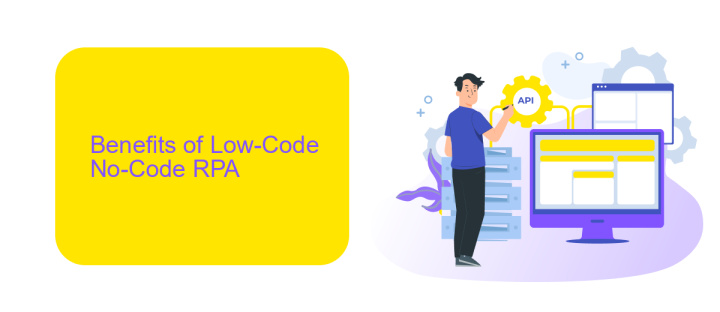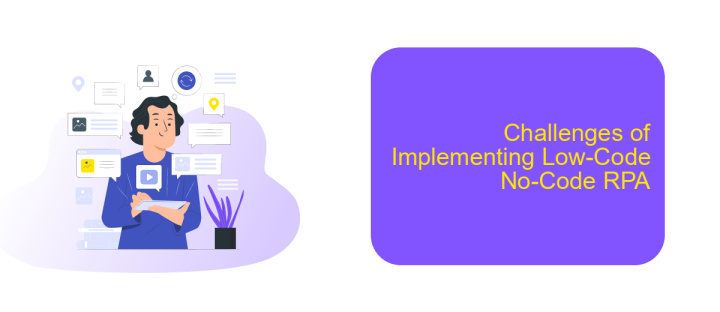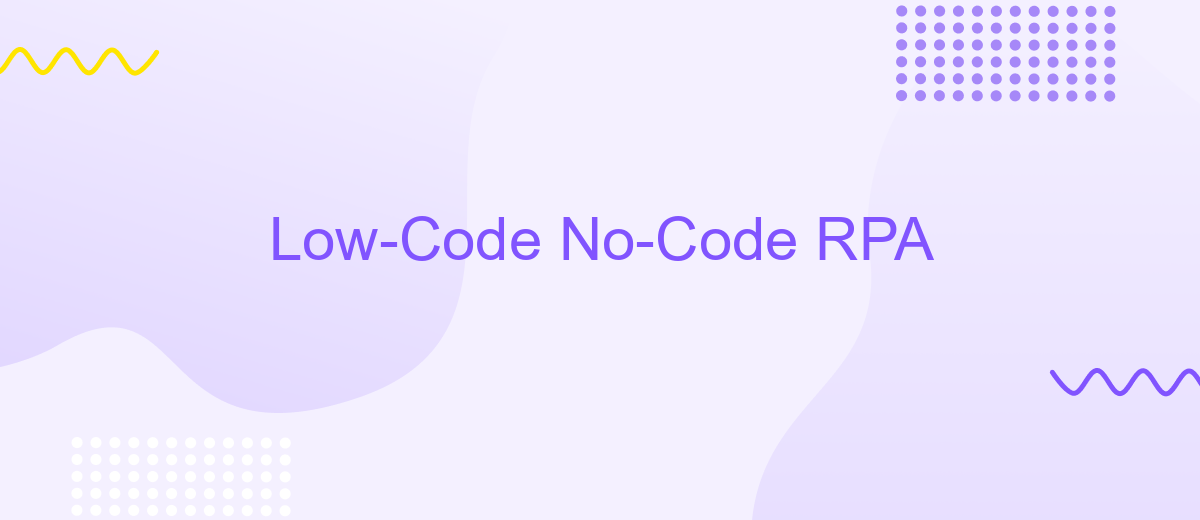Low-Code No-Code RPA
The rise of Low-Code No-Code (LCNC) platforms is revolutionizing the landscape of Robotic Process Automation (RPA). By enabling users to design and deploy automated workflows with minimal coding knowledge, LCNC RPA democratizes automation, making it accessible to a broader audience. This shift not only accelerates digital transformation but also empowers businesses to optimize processes and enhance productivity efficiently.
Introduction to Low-Code No-Code RPA
Low-Code No-Code RPA (Robotic Process Automation) is revolutionizing the way businesses automate their processes. By allowing users to create automated workflows without extensive coding knowledge, this approach democratizes automation and makes it accessible to a broader audience. This innovation significantly reduces the time and cost associated with traditional RPA implementations.
- Ease of Use: Intuitive drag-and-drop interfaces.
- Cost-Effective: Reduces the need for specialized developers.
- Flexibility: Easily adaptable to changing business needs.
- Faster Deployment: Speeds up the automation process.
One of the key advantages of Low-Code No-Code RPA is its ability to integrate seamlessly with various services and applications. Tools like ApiX-Drive facilitate these integrations, enabling businesses to connect different systems effortlessly. This ensures that automated workflows are not only efficient but also cohesive, bridging gaps between disparate systems without the need for complex coding.
Benefits of Low-Code No-Code RPA

Low-Code No-Code RPA offers numerous benefits, making it an attractive solution for businesses seeking to streamline operations. One significant advantage is the ease of use, as these platforms allow users with minimal technical knowledge to automate complex processes. This democratization of automation empowers employees across various departments to contribute to digital transformation efforts, reducing dependency on IT teams and accelerating project timelines.
Another key benefit is the rapid deployment and integration capabilities of Low-Code No-Code RPA solutions. Tools like ApiX-Drive facilitate seamless integration with various applications and services, enabling businesses to connect disparate systems effortlessly. This not only enhances data consistency and accuracy but also improves overall operational efficiency. Additionally, the flexibility offered by these platforms allows organizations to adapt quickly to changing business needs, ensuring long-term scalability and resilience.
Use Cases for Low-Code No-Code RPA

Low-Code No-Code RPA (Robotic Process Automation) offers versatile use cases across various industries, enabling businesses to streamline operations without extensive coding knowledge.
- Customer Service Automation: Automate repetitive customer service tasks such as responding to common inquiries, processing returns, and managing customer data.
- Data Integration: Utilize tools like ApiX-Drive to seamlessly integrate multiple data sources and applications, ensuring smooth data flow across platforms.
- HR Processes: Simplify HR tasks including employee onboarding, payroll processing, and performance management through automated workflows.
- Financial Operations: Automate invoicing, expense tracking, and financial reporting to enhance accuracy and efficiency in financial departments.
- Marketing Campaigns: Streamline marketing efforts by automating email campaigns, social media postings, and lead management.
By leveraging Low-Code No-Code RPA, organizations can significantly reduce manual workload, minimize errors, and improve overall productivity. Tools like ApiX-Drive further enhance these capabilities by providing easy-to-use integration solutions, making it simpler for businesses to connect and automate their processes.
Challenges of Implementing Low-Code No-Code RPA

Implementing Low-Code No-Code RPA poses several challenges that organizations need to address for successful deployment. One of the primary issues is the integration with existing systems, which often requires meticulous planning and execution to ensure seamless operation.
Another significant challenge is the scalability of these solutions. While Low-Code No-Code platforms offer rapid development, scaling them to meet growing business demands can be complex and resource-intensive.
- Integration Complexity: Connecting with legacy systems and third-party applications can be difficult.
- Scalability Issues: Ensuring the solution can grow with the business needs.
- Security Concerns: Protecting data and maintaining compliance with regulations.
- User Training: Educating employees to effectively use and manage the new tools.
To mitigate these challenges, leveraging integration services like ApiX-Drive can be highly beneficial. ApiX-Drive simplifies the process of connecting various applications and automating workflows, allowing organizations to focus on optimizing their RPA initiatives without getting bogged down by technical complexities.
Future of Low-Code No-Code RPA
The future of Low-Code No-Code RPA is poised to revolutionize the automation landscape by democratizing access to powerful automation tools. As businesses increasingly seek to streamline operations and reduce costs, these platforms will enable even non-technical users to create and deploy sophisticated automation solutions with minimal coding knowledge. This trend is expected to drive widespread adoption across various industries, empowering organizations to become more agile and responsive to market changes.
One of the critical aspects of this evolution is the integration of various services and applications, which can be seamlessly managed using tools like ApiX-Drive. Such platforms facilitate the easy connection of disparate systems, enabling automated workflows that enhance operational efficiency. As the demand for integrated solutions grows, the role of Low-Code No-Code platforms in simplifying these integrations will become even more significant, paving the way for a future where automation is accessible to all, regardless of technical expertise.
FAQ
What is Low-Code No-Code RPA?
How does Low-Code No-Code RPA benefit businesses?
Can Low-Code No-Code RPA be integrated with existing systems?
What types of tasks can be automated using Low-Code No-Code RPA?
How can I get started with Low-Code No-Code RPA?
Apix-Drive is a universal tool that will quickly streamline any workflow, freeing you from routine and possible financial losses. Try ApiX-Drive in action and see how useful it is for you personally. In the meantime, when you are setting up connections between systems, think about where you are investing your free time, because now you will have much more of it.

